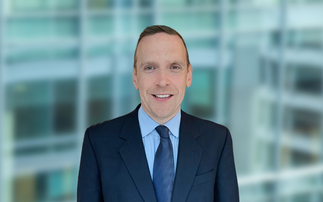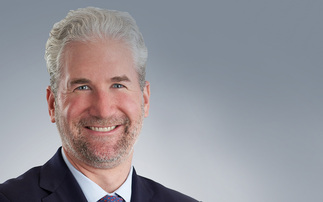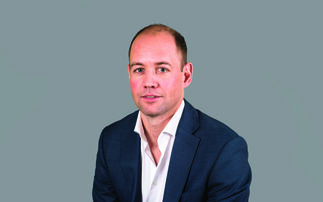By Alliance Trust Investments
The average age of the global population is rapidly increasing; this is a result of increasing life expectancy, declining birth rates and the post World War II ‘Baby Boomer' generation coming to retirement age. Over 60s will account for 22% of the global population by 2050, equating to roughly 2bn people, outnumbering children.
This social phenomenon has led to a number of opportunities and threats associated with old age, which will have a far reaching impact on our economy and will affect more than just the healthcare industry. All industries will have to adapt and appeal to older generations if they are to benefit from this structural demographic change.
So, what is causing population ageing?
1. Increasing life expectancy
Global life expectancy has increased by 20 years from 48 years old in 1950-55 to 68 years old in 2005-10. This is expected to reach 75 by 20501.
2. Falling birth rates
The fertility decline over the last half century has been one of the main factors explaining global ageing (Source: UN). Global birth rates have fallen from 5 children per woman in 1950, to 2.5 today, and are expected to fall to between1.8-2.2 by 2050.

'Baby boomers' are commonly defined as people born after World War II, during the years 1946 and 1964. There are roughly 450m born in the spike period, who are now reaching retirement age and are creating a bulge in the age pyramid.
What impact will this have on our economy?
Currently, just over one in ten people are aged over 60, but they account for a much larger proportion of the economic power. For example, the Baby Boomer generation reportedly accounts for c.60% of US consumer spending and c.50% of UK spending2. In absolute terms the numbers are also big. The spending power of consumers aged over 60 is estimated to be $15tn globally by 20203.

The increasingly older population will have a profound impact on the economy as it controls a larger proportion of wealth and spending power.
Exposed industries
We conducted a SWOT (Strengths, Weaknesses, Opportunities, Threats) analysis of old age, which helped us to highlight some of the industries which are developing relevant products and solutions for an ageing population, which you can see below. We have also taken a closer look at the financial services industry.

Financial Services
Longevity presents the risk that people live longer than expected and have not accumulated enough savings for their life (duration gap). This creates opportunities for insurers and wealth managers that are able to manage assets during the accumulation phase and manage risk during the post-retirement 'decumulation' phase.
Wealth of the older generation
In the US, the 50+ population controls 80% of aggregate net wealth with an average wealth of $765,000.
In the UK, 50+ households are worth £541,000, and this peaks at £723,000 at age 60-64.
Old people tend to have a large amount of investable assets, but only 40% of retirees use a financial adviser. In the US there are roughly 1.9m households with investable assets over $2m, and 56% of those households are headed by someone over 60 years old. Globally, total wealth stands at $240trn with $46trn of this being readily investable4.
The 'Great Transfer'
The additional factor to consider when discussing the opportunity of ageing populations and wealth management is the asset transfer from people born in the 1920s and 1930s to the Boomers. This ‘Great Transfer' estimates a shift of $12trn of wealth, and this will happen over the next c.30 years as the Boomers die and pass their wealth onto the next generation5.

The financial services industry will be very important in a future where state support is diminishing and pension savings are now the responsibility of the individual. Evidence suggests that people are unprepared for their financial futures, with only 6% of households using estate planning services (Source: BAML and Accenture).
We have highlighted a number of companies that should benefit from this structural theme, including global insurer Prudential, which has emerging market exposure, an excellent management team and a number of thriving subsidiaries. Wealth managers, including St James Place based in the UK and AMP Ltd in Australia, are also well placed to benefit from helping people prepare for their financial future.
References
1. United Nations: World Population Prospectus http://esa.un.org/unpd/wpp/
Documentation/pdf/WPP2012_Volume-I_Comprehensive-Tables.pdf
2. Financial Times
http://www.ft.com/cms/s/2/08bff556-52c7-11e4-a236-00144feab7de.html
3. Bloomberg
http://www.bloomberg.com/news/articles/2013-09-17/aging-boomers-befuddle-
marketers-eying-15-trillion-prize
4. Bank of America Merrill Lynch - The Silver Dollar Sarbjit Nahal, Beijia Ma.
Campaign to End Loneliness
http://www.campaigntoendloneliness.org/
Oxford Institute of Ageing
http://www.ageing.ox.ac.uk/
Royal Geographic Society
http://www.rgs.org/OurWork/Schools/Teaching+resources/Key+Stage+3+resources/Who+wants+to+live+forever/Why+are+people+living+longer.htm
United Nations Department of Economic and Social Affairs
http://www.un.org/en/development/desa/index.html
World Bank
http://data.worldbank.org/
World Health Organisation
http://www.who.int/ageing/about/facts/en/
Important information
Please note the value of investments and any income from them can go down as well as up. Investors' capital is at risk and they may not get back what they originally invested.
Examples of stocks are provided for general information only to demonstrate our investment philosophy. It is not a recommendation to buy or sell. Note that the view of the Manager may have changed since this article was written.
This article is not intended as an investment recommendation and should not be treated as such. Instead it is intended as an example summary of the work we do looking at longer term changes we anticipate happening in the market which we analyse to inform our investment decisions. This analysis forms only part of what is considered in making an investment decision.
Funds which undertake ethical screening to meet their investment aims are unable to invest in certain sectors and companies.











